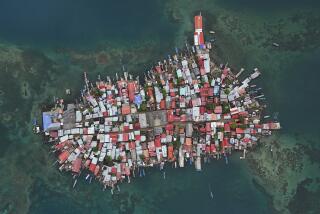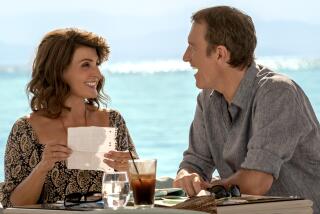Wanted: People willing to live on a beautiful, remote Greek island
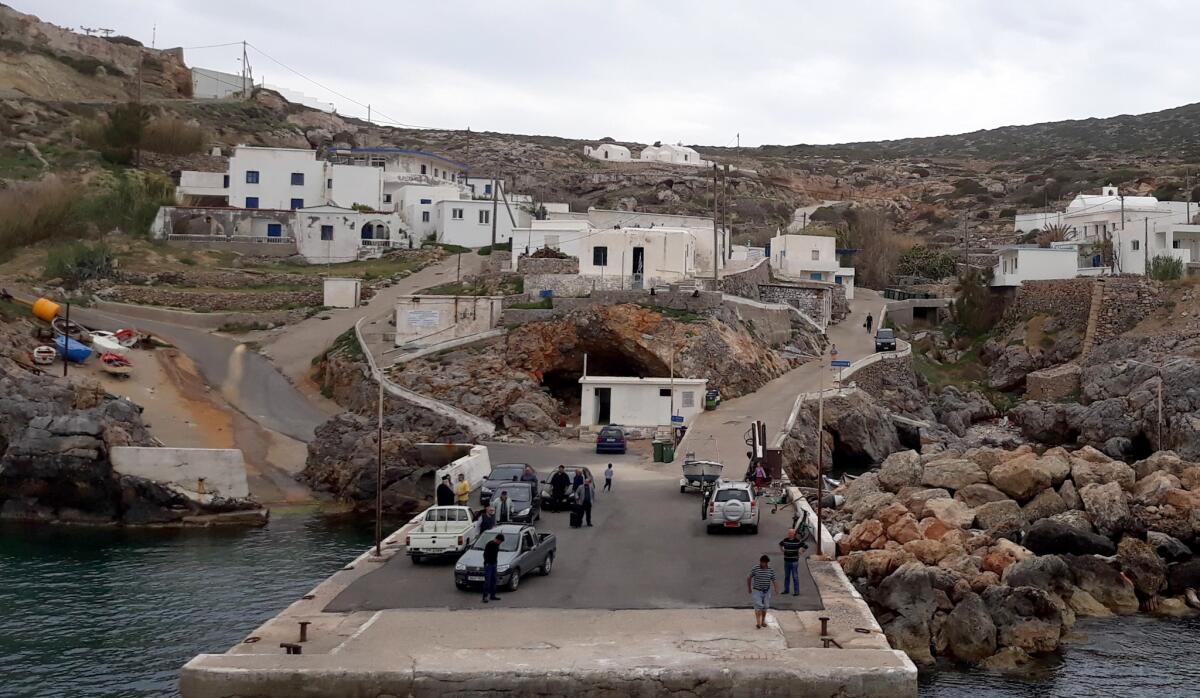
Reporting from Antikythera, Greece â The three Andronikos children had been dressed with care. Their white shirts were ironed, their shoes were vigorously shined and their faces had been scrubbed clean. Theyâd rehearsed their lines until they were word-perfect, in preparation for a momentous occasion. The president of Greece was scheduled to visit this tiny island, and the Andronikos siblings, the only pupils at the newly reopened school on Antikythera, were the main attraction.
Last monthâs stopover was relatively brief, part of a whirlwind tour for Greek President Prokopis Pavlopoulos. But it was a big deal for Antikythera, where the official population is listed at 20. The presidentâs entourage outnumbered the locals, and everyone on the island with a car was asked to help ferry the visitors to the hilltop school for the ceremony.
A small windswept dot of land, located between the vastly larger island of Crete and the Greek mainland, Antikythera could do with a baker, a builder and maybe a veterinarian. But what the island desperately needs is young families. Before the three children arrived last September, Antikytheraâs only school had been shut for 24 years, testimony to the forces â the countryâs continuing financial crisis, emigration, a declining birthrate and an aging population â that threaten the islandâs survival.
âWe are an island of pensioners, old men, not children,â says 62-year-old native Vassilis Aloizos, a retiree who spends seven months of the year on the island. âOne family wonât make a difference.â As students progress to higher grades and university, they will have to leave the island, so âif itâs more than one family, then thatâs good.â
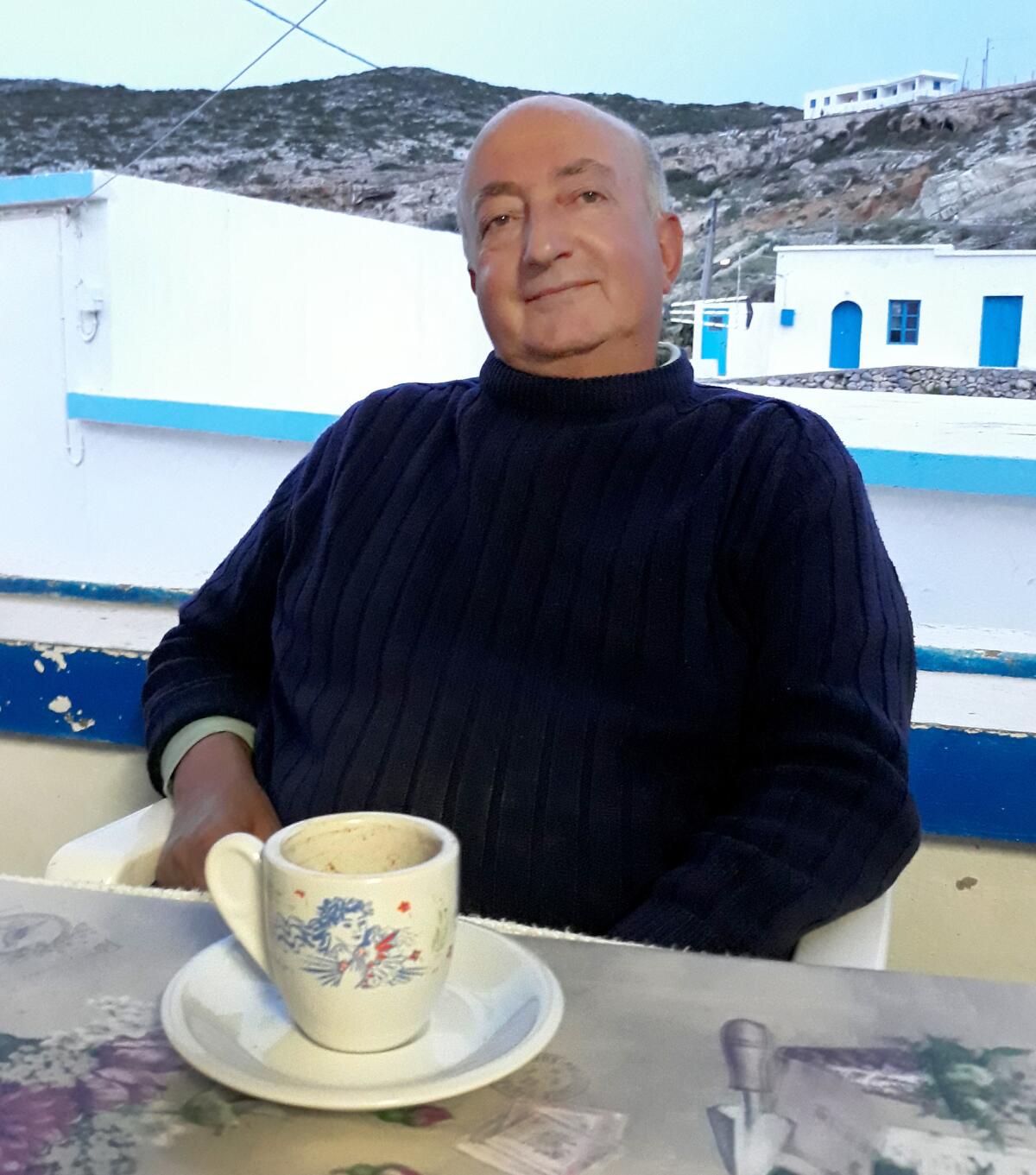
To that end, the local diocese of the Greek Orthodox Church is preparing four families with young children to move here from the greater Athens area and, perhaps, provide some continuity on an island that has a checkered history of habitation over thousands of years.
Whatâs happening on Antikythera is a microcosm of whatâs going on in the entire country as Greece continues to deal with a demographic malaise exacerbated by the departure of young professionals of child-bearing years.
Deaths regularly outpace births. At the end of World War II, only 1 in 10 Greeks was 65 or older. That ratio has since grown to 1 in 5 Greeks, and in 2050, it is predicted to be 1 in 3. Greeceâs fertility rate, at 1.35 births per woman, is among the lowest in Europe, and isnât expected to return to pre-crisis levels until 2050. And even though nearly a million refugees and migrants from the Middle East and Africa fled to Europe via the Greek islands in recent years, the lack of jobs spurred most of them to move on to more prosperous European countries.
Tourism remains a major industry in Greece, but Antikythera doesnât lend itself easily to the sort of tourism that draws throngs of visitors to other islands such as Santorini and Mykonos. The beaches are beautiful but inaccessible. Ferries to the island are at the mercy of treacherous winds that can leave visitors stranded. There are no taxis, no supermarkets and no gas stations.
The outlook threatens to undermine any hard-won economic achievements after years of financial turmoil that cut the countryâs economy by a quarter and left millions out of a job and battling poverty. From the church to the countryâs central bank, the alarm bells are ringing.
âWhat has happened in Greece is that the [economic] crisis has accelerated the effects of aging within a fairly short period of time, both because it has dropped the birthrates and because Greece has had and may still have a brain drain,â says Bob Traa, a former International Monetary Fund official. âIt may take a full generation â some 30 years â for the Greek population to stabilize from the impact of the economic shock.â
: :
If the world knows about Antikythera, itâs because of the rich artifacts recovered from an ancient shipwreck in its waters, among them the Antikythera Ephebe, a striking bronze sculpture of a youth, and the Antikythera Mechanism, an intriguing contraption of interlocking gears that has been hailed as the first computer. The huge shipwreck, discovered in 1900, continues to offer up findings, including a human skeleton in 2016.
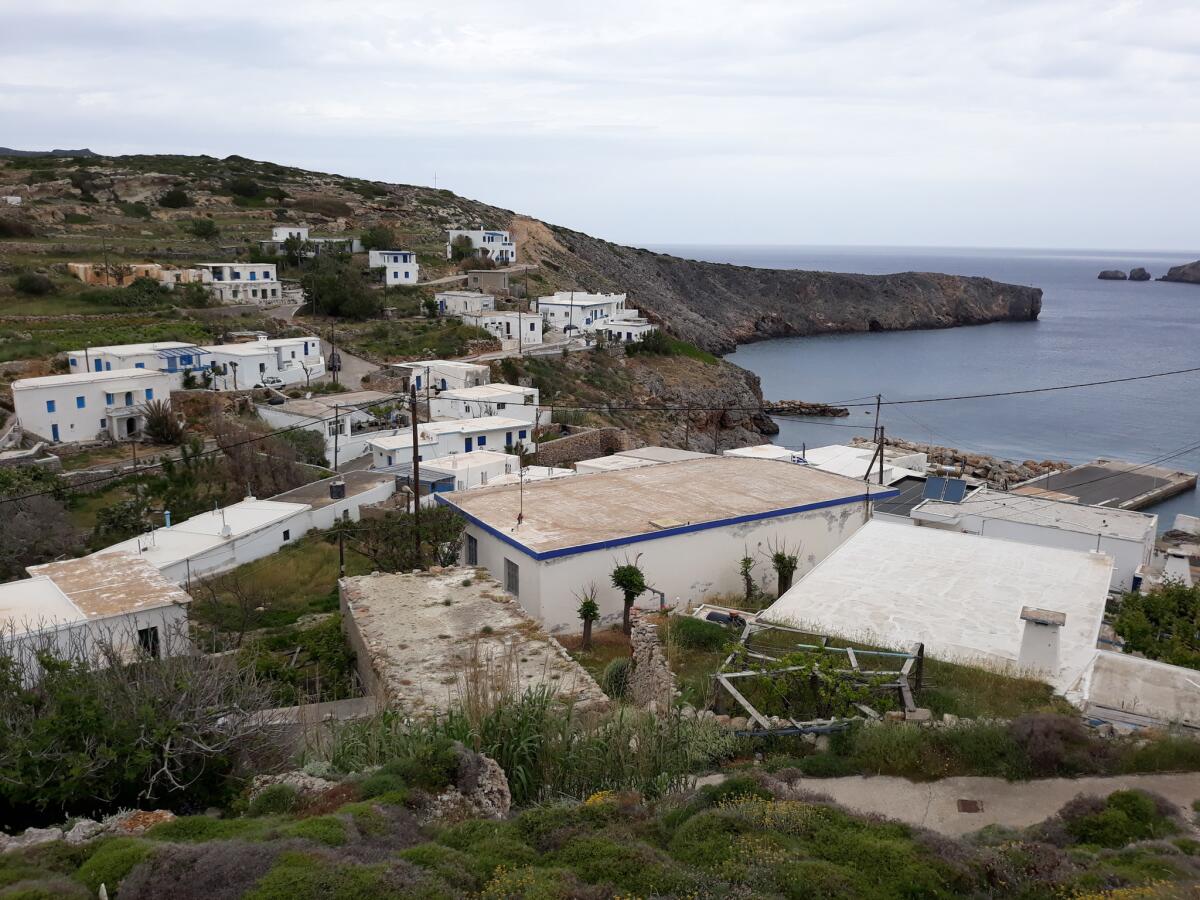
But Antikythera is significant for all sorts of other reasons. It has its own source of water, a precious resource for a Greek island. It has an autonomous power station. It is an important stopover for hundreds of species of migratory birds. Archaeologists have pored over the island, because its size and demographic ebbs and flows provide fertile ground for study.
Antikythera is also the site for a new national facility to study climate change, taking advantage of a strategic position that allows it to monitor Saharan dust, Canadian wildfire cinders, and ash from the explosion of Mt. Etna.
Officials hope that the Pangea, as the geoscience and climate observatory is called, will transform Antikythera into an island of science rather than an island of silence. The National Observatory of Athens, which is behind the project, believes it will create new jobs and help reverse the population decline.
It could also contribute, in its own small way, to stemming the brain drain of young Greek scientists. âThese are highly marketable people,â says Traa, the IMFâs representative in Athens during the early crisis years. âLosing them could slow productivity growth.â
The Greek unemployment rate â 18.5% â is still the highest in Europe, a significant deterrent to young Greeks thinking about starting a family. Though poverty has stabilized, it remains near a record high. The rates of all major taxes are now higher than in other European countries, according to the international Organization for Economic Cooperation and Development. Educational, and child-care resources are sometimes limited, especially in urban areas and for families not eligible for social assistance.
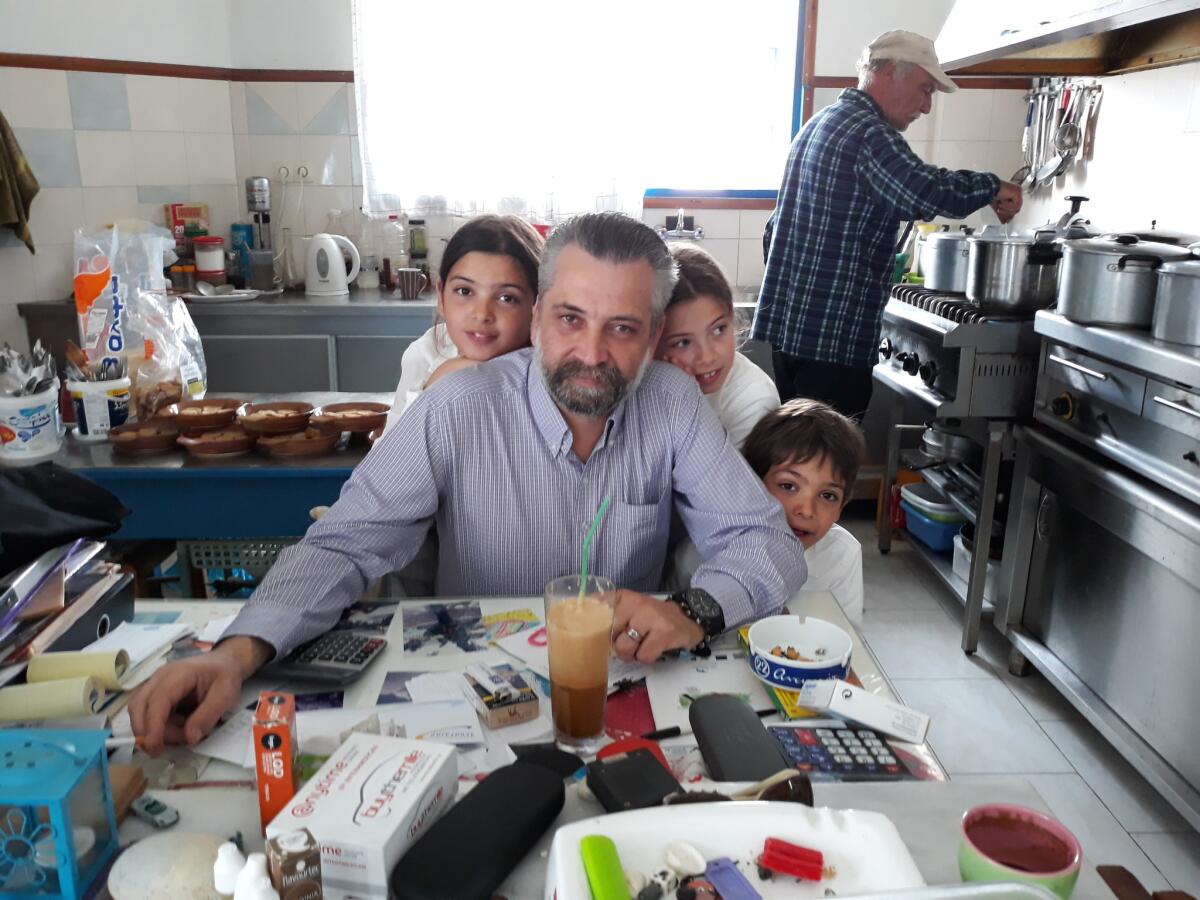
: :
Dionysis Andronikos and his wife, Despina, made the move from the capital, Athens, to Antikythera to give their children a better life. But he has held on to his job in Athens and divides his time between the island and the mainland.
âThey have a freedom, a quality of life here they cannot have in Athens,â he says in the small restaurant his wife operates as the children â Anastasia, 11, Stamatia, 8 and Iakovos, 6 â hang off his arms.
Newcomers will need assistance to tackle the difficulties of adapting to life on Antikythera. Itâs even an adjustment for Dionysis and Despina, who lived on the island or visited for long periods of time as children. (At one point, Dionysis didnât see his family for a month because bad weather prevented the ferry from reaching the dock.)
Iakovos, the youngest person on the island, stands out as he skips alongside his father when they walk down with the other islanders to meet the boat. He loves to watch the boats arriving, especially when they carry his father. âItâs always a beautiful day when Papa comes,â he says shyly.
The four new families will receive housing and land and an allowance of 500 euros a month for three years to allow them to start make a living. But the church program is not open to everyone, and the pace of preparation for new arrivals is slow, held up by the wait for final approvals. A recent government-funded road on the island took five years for approval.
A permit to build can similarly take years to be issued, says George Katsanevakis, an islander who visits every two weeks to tend to his beehives. He has two small children and lives in Athens. There is little incentive to live on the island, he says, economic or otherwise.
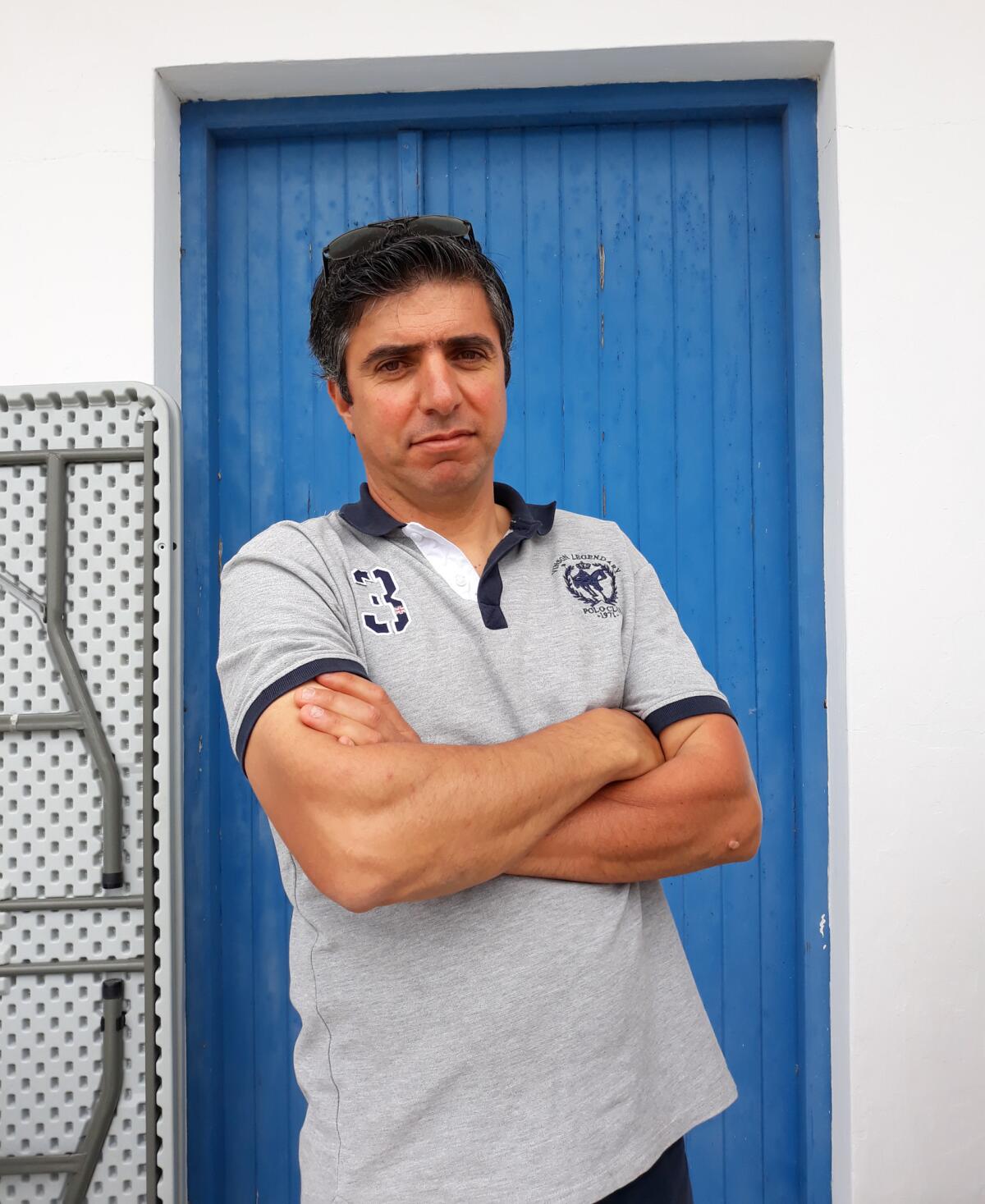
âWhatever we pay in Athens, we pay in Antikythera,â he says. âIf they gave some incentives it would be different. I work day and night and still canât make ends meet.â
Television reception on the boat to Antikythera is patchy and the screens flicker on and off. A male voice in a political advertisement is promising new jobs. âThe future begins now,â he intones before he is replaced by white noise as the signal is lost.
Father Vassileos Dimopoulos, a Greek Orthodox priest, traveling to the island to see his daughter, the islandâs schoolteacher, says the families moving to Antikythera need to be carefully vetted and prepared. âNot everyone is suited to be a beekeeper,â he says, gesturing toward the TV showing an advertisement for new cars. âPeople have different expectations these days.â And while refugees could be settled there, they would need to overcome the language issue, apart from making a living.
Aloizos, the pensioner, left Antikythera when he was 16 to work on the ships. âMy family had six children,â he says. âBut there was no infrastructure to keep people here. The ships had work, there were jobs in the cities. Thatâs where everyone went.â
When he is not in Antikythera, he lives in Piraeus, Greeceâs biggest port, near Athens. But his remote and isolated island is never far from his mind. He feels a fierce loyalty and anxiety about its fate and wants it to survive.
âWhen you are born in a jail, you learn to love the jail,â he says. âThis is our place. We love our place.â
Petrakis is a special correspondent.
More to Read
Sign up for Essential California
The most important California stories and recommendations in your inbox every morning.
You may occasionally receive promotional content from the Los Angeles Times.
